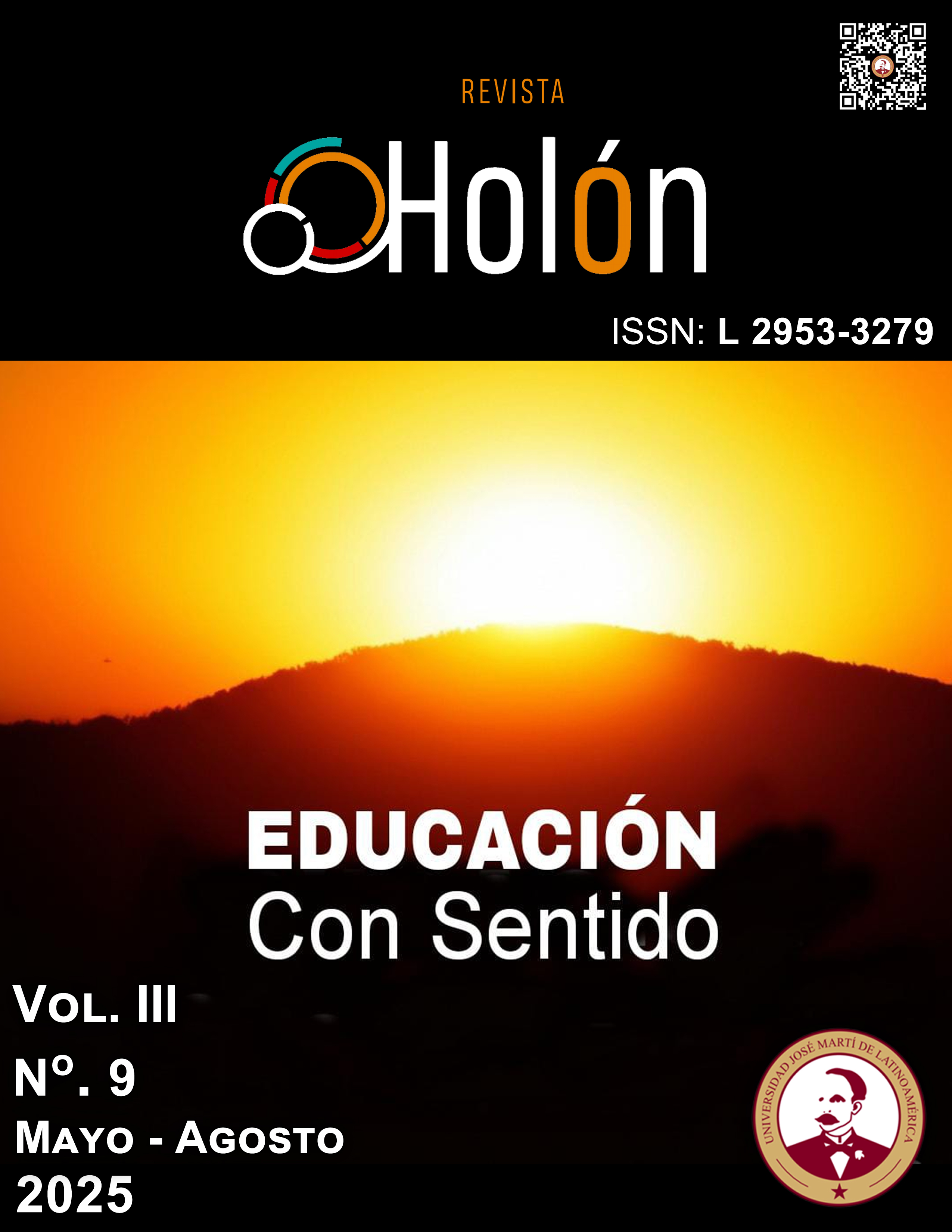

Copyright (c) 2025 Revista Holón

This work is licensed under a Creative Commons Attribution-NonCommercial-ShareAlike 4.0 International License.
This article aims to identify how curriculum development enables teachers to organize and select different strategies that support the teaching-learning process, related to a curricular model and approach, with the goal of fostering student autonomy through the use of various available resources. The study seeks to describe how university students use artificial intelligence (AI) to develop learning strategies outside the classroom. The methodological process considered follows a quantitative, descriptive approach, using a Likert-scale questionnaire. The instrument was validated through expert review and statistical analysis, ensuring its reliability with Cronbach's alpha. The population considered consists of university students undergoing initial teacher training in different areas of specialization. The results show that artificial intelligence has mainly been used to reinforce and understand academic content, which has contributed to a reduction in the amount of time students dedicate to studying. It can also be concluded that, in teacher training, it is important to consider how the use of artificial intelligence may influence students' interest in learning, as this aspect could later be reflected in their professional performance.